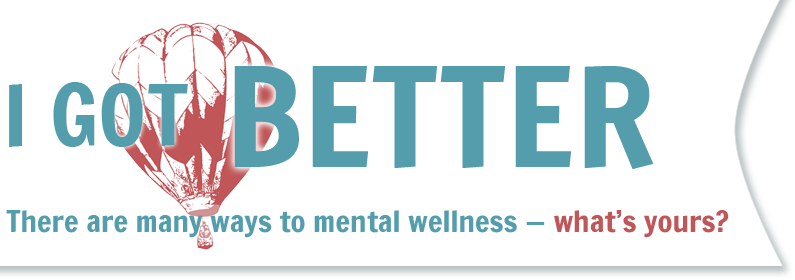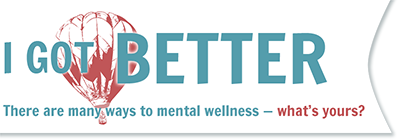An Advocate and Leader in My Community
Mary Angus; Omaha, NE

Has a mental health provider ever told you that you could reach a personal goal despite your psychiatric diagnosis?
I went back to college after quitting 6 years prior at the suggestion of a psych nurse during my first hospitalization. I completed my bachelor’s degree and a master’s degree. Later, after having moved in with my parents due to my financial and emotional situation, my psychiatrist and therapist encouraged me to apply for work and move into my own place… [However] one of my psychiatrists was very negative with me and threatened to institutionalize me when I wasn’t getting better at his time table.
During your mental health care, have you often felt hopeless about your chance of getting better?
For almost 20 years I felt there was no chance that I could live a satisfying life. My mood swings and suicidal feelings were so constant that I was unable to enjoy much of anything.
In what ways have you found psychiatric medication(s) helpful, if any?
Lamictal has helped me reduce the swings of my emotions.
In what ways have you found psychiatric medication(s) harmful, if any?
As a result of taking psychiatric medications, I have diabetes, tardive akathesia (restless legs), and I am morbidly overweight. I take something to combat the RLS and something to counteract the nausea that is an effect of that medication. My kidneys are at risk due to the meds and I take a blood pressure medication for that. I also have arthritis, which is made worse by my weight.
Tell us what recovery means to you. How would you define recovery from mental health or emotional problems in your own words?
This is tough. I think that recovery means I am able to live a satisfying life, manage the daily stresses, and engage in friendships and other relationships. I don’t think that recovery is simply the reduction or elimination of symptoms. I don’t think that recovery means “recovering” the life I had before. I’m not sure that I think of myself as having “recovered” as much as being successful in my life. That would be the case whether I’d experienced mental illness or not.
How recovered do you consider yourself from any mental health or emotional problems on a 10-point scale (with 10 being “fully recovered”)? Please use your own definition of recovery.
9
Can you give examples showing you have gotten better from a mental or emotional problem, such as how you are doing well or accomplishing goals you have chosen?
I am able to listen to criticism, determine it’s validity, and decide if it’s relevant before taking action on it. I would sometimes be in turmoil for weeks following a relatively minor criticism. I am a respected expert on disability issues, particularly related to mental illness. I have successfully become an advocate and leader in my community.


